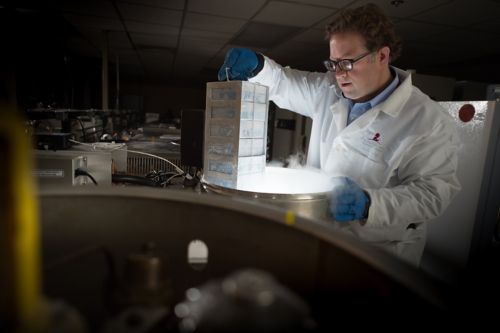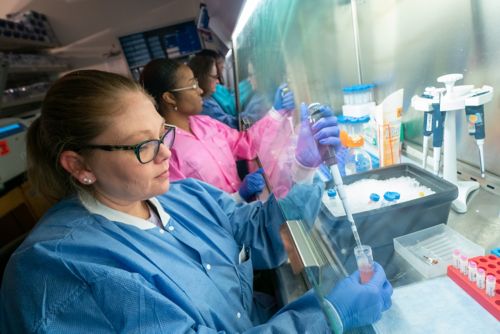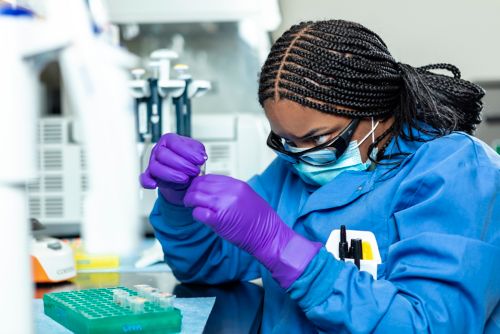St. Jude Family of Websites
Explore our cutting edge research, world-class patient care, career opportunities and more.
St. Jude Children's Research Hospital Home

- Fundraising
St. Jude Family of Websites
Explore our cutting edge research, world-class patient care, career opportunities and more.
St. Jude Children's Research Hospital Home

- Fundraising
Biorepository
The Biorepository is the central, institutional repository of biological specimens at the St. Jude Children's Research Hospital, providing biobanking and specimen processing services to investigators across the institution.
OVERVIEW
The mission of the St. Jude Biorepository is to provide biobanking and specimen processing services to investigators across the institution. It is the central, institutional repository of biological specimens at St. Jude Children's Research Hospital embedded in the Department of Pathology. As one of the first College of American Pathology-accredited biorepositories, St. Jude’s center processes, stores, and distributes specimens for numerous clinical trials. Additionally, the Biorepository banks left-over diagnostic specimens for future research, under the TBANK protocol.


IMPACT
The St. Jude Biorepository was launched in the mid 1970s with blood and bone marrow samples from childhood leukemia patients. Now, the library contains more than 500,000 specimens donated by current patients, long-term survivors, participants in St. Jude clinical trials worldwide, and children with non-malignant blood disorders such as sickle cell disease and bone marrow failure syndromes.
Tissue processing services
- Processing bone marrow and blood to isolate, distribute and store white blood cells
- Processing bone marrow specimens for diagnostic and MRD assays
- Processing of solid tumor, brain tumor, and matched normal tissues for immediate distribution and storage
- Processing blood samples to separate serum or plasma for distribution and storage
- Cryopreservation of primary tumors, xenografts and body fluids for subsequent research
- Distribution of human biological specimens within and outside the institution
- Extraction, banking and distribution of DNA and RNA to investigators
- Provide institutional 'honest broker' service to link deidentified clinical data to samples to facilitate research
Tissue archives
The Archives contain samples of human solid and brain tumors, uninvolved tissues and cell suspensions of tumor and normal hematopoietic cells collected at diagnosis, and at various subsequent time points within the course of therapy. DNA from diseased and uninvolved specimens is extracted upon request. Serum and plasma collected at diagnosis and at intermittent periods are also banked. Tumor tissues are stored in aliquots of snap-frozen tissue blocks and as extracted DNA. In addition, the Biorepository also banks urine, cerebrospinal fluid, ascites, pleural fluid, FFPE unstained slides, and FFPE scrolls.


Overall, families shared that donation to the Biorepository was important to them, that it gave some meaning to what they had gone through. We have focused so much effort on these rare pediatric cancers. In many cases, it involved many years of treating patients with these diseases and collecting clinical samples so that there was material available for research.
Suzanne Baker, Member
Biorepository by the numbers
200
200 clinical trials suppored worldwide
Biorepository by the numbers
500K & 21K
500,000 specimens donated over 40 years from 21,000 patients
Biorepository by the numbers
5K
5,000 specimens donated each month
Biorepository by the numbers
>95%
More than 95 percent of St. Jude families agree to contribute
Directors

Matthew Lear
Technical Director, Biorepository
Matthew.lear@stjude.org

Charles Mullighan, MBBS (Hons), MSc, MD
Medical Director, Biorepository
Charles.mullighan@stjude.org